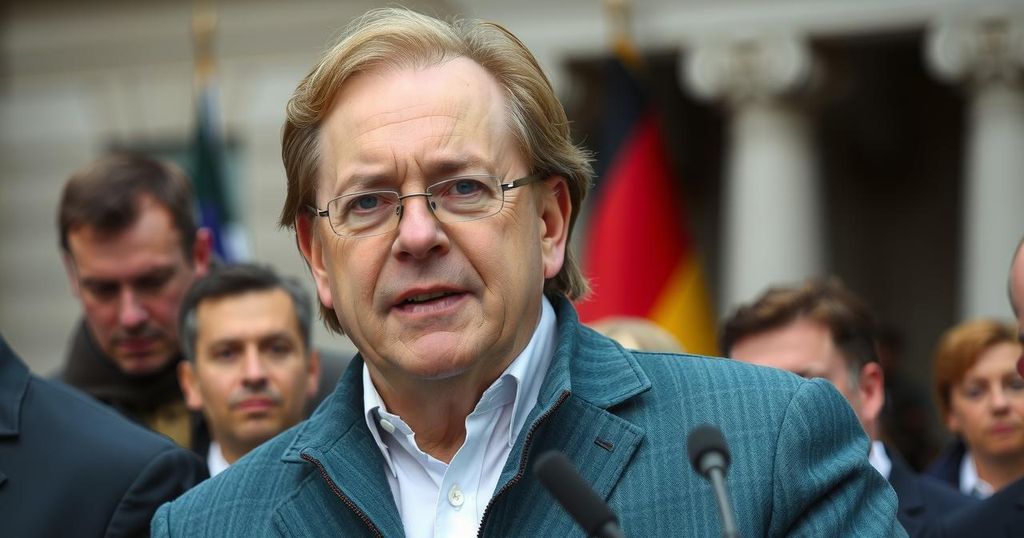German Government Responds to Elon Musk’s AfD Endorsement Ahead of Elections

Elon Musk’s recent endorsement of the far-right AfD party has provoked controversy in Germany as the government seeks to minimize his influence ahead of the upcoming general election. His opinion piece in a major newspaper was met with backlash, leading to the resignation of the editor. Officials have noted the AfD’s extremist monitoring by intelligence services, framing Musk’s input as inappropriate foreign intervention during a sensitive electoral period.
On Monday, the German government attempted to downplay Elon Musk’s recent endorsement of the far-right Alternative for Germany (AfD) party, which has sparked controversy ahead of the upcoming general election. Musk’s opinion piece, published in a major newspaper, praised the AfD as a potential catalyst for Germany’s economic and cultural revival, prompting significant backlash, including the resignation of the publication’s opinion editor.
Christiane Hoffmann, a government spokesperson, emphasized the importance of free speech but acknowledged that Musk was trying to exert influence over the federal election. She reminded the public that the AfD is subject to surveillance by Germany’s domestic intelligence for suspected extremism, as recognized in certain states.
As Germany prepares for an early election on February 23, following the collapse of Chancellor Olaf Scholz’s coalition government, Musk’s opinion piece marked the second time he publicly supported the AfD within the same month. He controversially stated, “The Alternative for Germany (AfD) is the last spark of hope for this country.” His comments touched off a debate about free speech limits in Germany, particularly regarding foreign input in domestic politics, leading to mixed reactions across the media landscape.
The context of this situation involves Elon Musk’s unprecedented engagement in German politics, particularly his backing of the AfD, a party known for its right-wing stance. The German government is wary of foreign influence in its electoral processes and has previously kept the AfD under scrutiny for potential extremist affiliations. With an early election on the horizon, the political climate is sensitive, and Musk’s intervention has raised alarm bells among policymakers and media, including the resignation of a prominent opinion editor at a major newspaper expressing dissent against Musk’s perspective.
In summary, the German government’s response to Elon Musk’s endorsement of the AfD highlights the tension between free expression and the potential for foreign meddling in domestic elections. As Germany approaches a critical electoral moment, the implications of Musk’s comments and their reception by the public and political figures remain a focal point of discussion, underscoring the intricacies involved in balancing free speech and national interests.
Original Source: www.voanews.com






